

Sardar Biglari, an investor of Iranian descent based in USA, is clearly cloning himself on the lines of Warren Buffett. He calls his holding company Biglari Holdings, with the same initials as Berkeshire Hathaway. The website of Biglari Holdings is a carbon copy of that of Berkeshire. Sardar also writes annual letters to shareholders, the way Warren does, which he (Sardar) calls “our beholden duty to communicate clearly our approach, business objectives, philosophy, principles — in an effort to cement an alignment of expectations with all owners”.
Sardar’s investment strategy of finding undervalued companies with a deep moat is also akin to that of the Oracle of Omaha. He also has a trusted partner in Phil Cooley, Vice Chairman of BH, much like Warren has Charlie Munger.
Sardar Biglari is very clear-headed and focused. The way he explains his investment strategy is very inspiring. Let’s pay attention:
The beginning:
Sardar Biglari’s investing career began at the tender age of 18 when he founded an internet service provider with a capital of $15,000. He made that business into a success and sold it to Internet America. The proceeds of the sale were invested in setting up the “The Lion Fund”, a private partnership of a limited number of members. Sardar made this also a success by finding a number of profitable ventures to invest in. Biglari Holdings, the current vehicle was set up to consolidate all investments in one entity.
As of the end of December 2013, Biglari Holdings had $635M in cash and investments, of which $75M came from a rights offer. If you exclude the rights offer, BH’s investments increased by 47.9% last year, which is quite commendable.
No interference in investment decisions tolerated:
A common theme with Bilgari is how he must have the freedom to make investment decisions. “You are choosing the jockey; I am choosing the horses. It would be asinine to bet on the jockey and then deny him the saddle or whip” he says.
Sardar obviously takes the responsibility for his decisions. “You should be aware that we have no investment committee intruding on capital and investment decisions. Any mistakes that would occur, and I assure you there will be errors, are only mine to make. Further, when undertaking acquisitions, we will not utilize investment bankers. Doing so is simply not our style. I will never abdicate responsibility. If we don’t know enough about a business, we don’t want someone to teach us on your tab” he says.
Investment modus operandi:
Like Berkeshire Hathaway, Bilgari Holdings is a “capital allocating vehicle”, holding other businesses with diverse interests. “We are searching for businesses in simple, comprehensible, and predictable industries that are cash generating, not cash consuming” Sardar says, echoing the wisdom of the Oracle of Omaha. “Our prospecting frequently leads us to under-performing, under-managed, and under-valued companies because they afford better opportunities for outsized gain” he adds.
Market volatility welcome:
Like all sensible long-term investors, Bilgari also says that he welcomes market volatility – the more extreme, the better. He points out that in times of market dislocations, myriad opportunities surface and when allocating capital, a prepared mind and a prepared financial posture are absolutes for taking advantage of a rewarding opportunity when it presents itself. One has to be aggressive when others are mired in apprehension, he says, echoing Warren Buffett’s similar timeless advice.
Cash is king, valuation is its queen:
Bilgari is not averse to holding large amounts of cash while waiting for opportunities to come by. “Cash returns are currently un-remunerative. But they never burn a hole in our pockets. Our current financial posture permits us to exploit favorable opportunities as they arise. If cash is king, valuation is its queen. I think our conservative, opportunistic value approach is the most sensible way to earn a satisfactory return” he says.
Strategy for finding investment-worthy stocks:
Sardar explains that he is constantly looking for stocks of businesses trading at a discount from his assessment of their worth. “We will make money on a stock if we appraise its business correctly, if we purchase it at a discount, and if its price/value (p/v) converges. Correcting underperformance is often highly lucrative once we identify an undervalued target, purchase a large stake, assume leadership positions, and then implement winning ideas” he says.
He adds that he is searching for businesses that are simply awash in cash. “The businessmen within us seek to buy the entire enterprise whereas the investors within us seek to purchase a part of the enterprise through the stock market. While we prefer the former, the latter offers a far larger and a wider range of investment opportunities. Within a sizable investment universe, I simply review feasible opportunities and compare them with each other, aiming to apportion and thereby concentrate capital based on reward /risk ratios. We are not in the business of predicting markets; our expertise lies in taking advantage of mispriced securities. Our deep-seated intent is to allow capital to flow into our very best ideas, logically resulting in an extremely concentrated portfolio”.
Passive investing vs. control investing:
Sardar Biglari’s style is not passive investing. Instead, it is “control investing”. Bilgari believes that ownership should not be separated from control. Otherwise, it creates significant inefficiency he says. His gameplan is to identify mis-managed companies, purchase a large stake, assume leadership positions, and then implement winning ideas.
He explains the concept of “control investing” eloquently:
“… when board members do not hold meaningful ownership nor have serious business experience, they tend to tolerate management’s failures. We are firm believers that achieving top-level corporate governance and enhancing long-term value require placing shareholders on the board who possess significant holdings along with rather deep business experience. This stipulation ensures the proper coalescence of interests between the board and its owners. The causality between lack of ownership and lack of accountability is commonsensical. Without a personal stake, directors’ incentives, we believe, center on pay, prestige, and perks rather than on what is indispensable, performance. To put it succinctly, when a director has not made financial commitments on the same basis as owners have, then we believe he or she cannot relate well to the owners of the company. When directors do not purchase stock but become compensated through stock grants and stock options, they resemble employees not owners. By law, directors have a duty to represent owners. But who better to represent owners than a true owner?”
Investment horizon is forever:
Bilgari calls his investment model superior to that of a hedge fund or a mutual fund because there is no compulsion to return capital to the investors. The permanent capital is used to fund permanent investments. “We find that a permanent capital-allocating vehicle, combined with a flexible, opportunistic framework, enables us to arrange and institute transactions in an effort to advance per-share intrinsic value” he says. Steak n Shake Operations, Inc. and Western Sizzlin Corp. have been designated as “permanent holdings” with no exit strategy. However, there may be other non-controlled investments which may be for a short-term period. Cracker Barrel Old Country Store, Inc is a recent non-controlled investment in which 19.9% equity stake was bought by Bigari Holdings for $241M. The market value of this investment is already $485M. In addition, dividend of $18.4M has been received.
Believer in a concentrated portfolio:
Sardar is a believer in the policy of concentrating capital into very few concerns. “We focus our attention and capital in an attempt to increase returns yet concomitantly reduce investment risk. Therefore, we limit our appraisals and allocations to businesses we can rationally assess, immersing ourselves in understanding a business rather than attempting to study many shallowly. As a consequence, our range of investments may be narrow, but within it we must be supreme. Analysis that is a mile wide and an inch deep is fool’s gold. We purchase stocks for investment not speculation. Our old-fashioned, long-term investment approach is one that suits us” he says.
He also quotes John Maynard Keynes who succinctly outlined his guiding principles for a concentrated portfolio strategy: “1. a careful selection of a few investments having regard to their cheapness in relation to their probable actual and potential intrinsic value over a period of years ahead and in relation to alternative investments at the time; 2. a steadfast holding of these in fairly large units through thick and thin…. 3. a balanced investment position, i.e. a variety of risks in spite of individual holdings being large….”
Talk is cheap, cash isn’t:
Bilgari is not in favour of wasting time on “investor relations”. “We think that sort of footwork is an unproductive use of our time and adds no value to your shares. After all, talk is cheap but cash isn’t. As Henry Ford said, “You can’t build a reputation on what you are going to do.” To earn more money requires not a conversation but rolling up our sleeves and earning it through good, old-fashioned elbow grease” he says.
Bilgari adds that the policy of refraining from airing investment ideas will continue. “We leave public promotions of stocks to others. We do not see an upside to discussing specific, publicly-traded companies. In fact, we see a significant downside, inasmuch as blueprinting our methods and sharing our trade secrets can diminish the value of our business. As a consequence, outside of regulatory requirements, we will not telegraph our investments, our rationale, or our plans”.
BH is no stock for dummies:
Bilgari Sardar gives an indication of his no-nonsense attitude when he declares that “BH is no stock for dummies”. He does a lot of plain-speak:
“If you need to rely on third parties – analysts or advisors – to make investment- or proxy related decisions, you are not our kind of investor. We are seeking owners who are guided by logic, not by convention. Thus, you must be comfortable with placing confidence in an entrepreneur-led company and with the unpredictability of capital allocation that comes with it. Because we operate differently from most public companies, we require shareholders of a different bent. Those seeking a traditional company, requiring predictability, are going to be disappointed with BH. It is an entrepreneurial enterprise accepting bumpiness in pursuit of higher returns. If you think this system is not in sync with your expectations, it would be best for you to exit now, not after a market shock. Our stock, in effect, rules out bureaucrats, who will not understand our dynamic approach. As 18th century poet and man of letters Samuel Johnson said, “Sir, I have found you an argument; but I am not obliged to find you an understanding.”
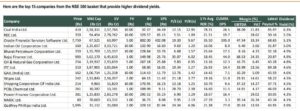
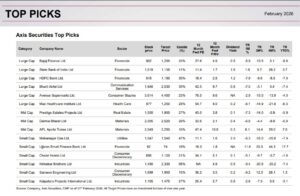
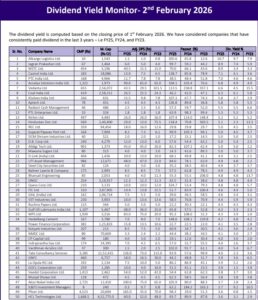
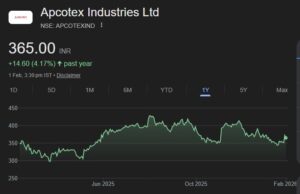
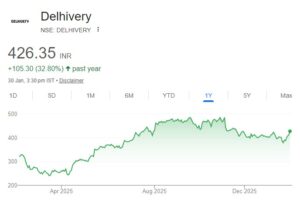
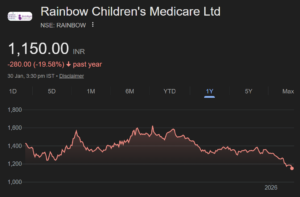
Your research for content is commendable.
Simply fantastic. So brazenly clear in his approach, what he wants and how he wants to do it. Very rarely, one comes across such a candid revelation about a publicly owned company. Completely demolishing all theories of good practices about great business? Ah!.
Why can’t we have such investment vehicle companies in India. India is a huge country with explosive future growth and such kind of investment vehicles in India can be a boon for our country.
Impressive article. I like his investment model.
Hi Sir,
I am sure you have come across value-pick website. http://value-picks.blogspot.in/. This website produces the maximum number of multi baggers.
And some of the paid stock service providers also copy the recommendation from value-pick
Just wanted to know you take on this website.
Thanks
Deepak
Fantastic, only 35 years of age and in the billionaire class of a self-made Investment Industrialist.